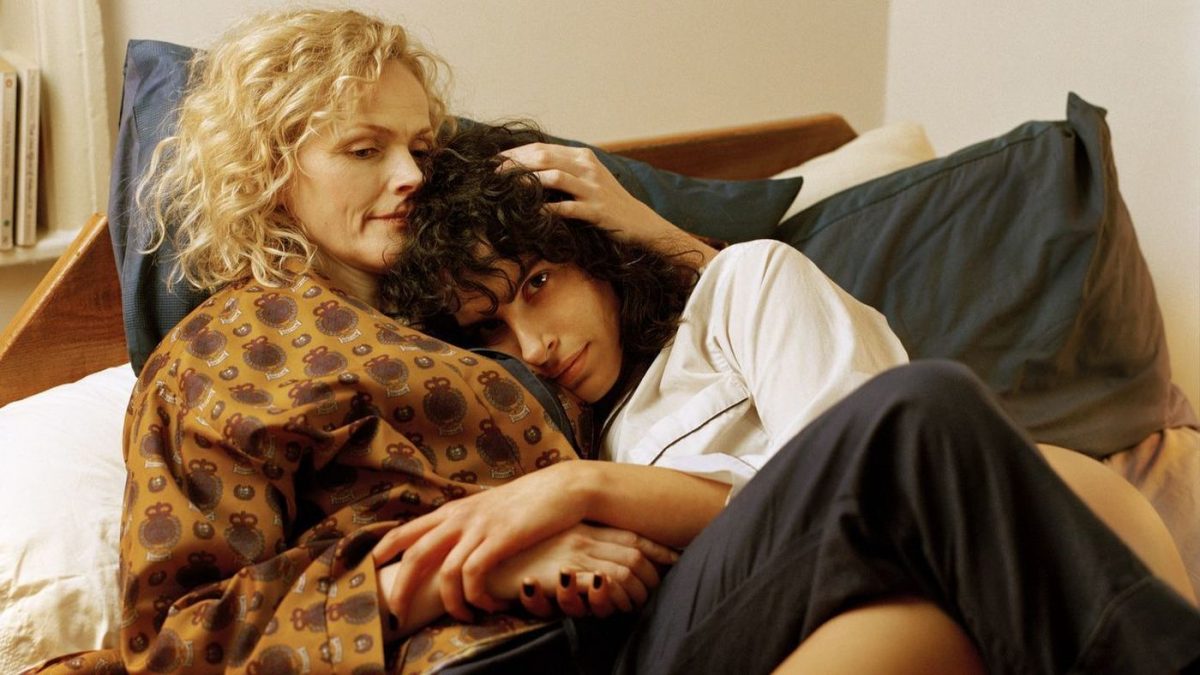Desiree Akhavan’s The Bisexual Is a Queer Story Told by (Shocker!) a Queer Woman
The Miseducation of Cameron Post director takes on sexual fluidity in her new Hulu series.

The experience of being a queer person is often that of being on the outside, looking in. While queer representation has grown in leaps and bounds over the last few years, there is still a depressing lack of queer stories told by queer artists. This is not to say that straight people can’t tell good queer stories, but there’s an authenticity that comes with queer artists helming their own experiences as opposed to filtering it through a straight lens.
Hulu’s The Bisexual is a refreshing change of pace, as it centers on a queer woman’s story written and directed by an actual queer woman (what a concept!). Akhavan’s six-episode series follows Leila (Akhavan) a self-identified lesbian who breaks up with her partner of ten years Sadie (Black Mirror‘s Maxine Peake) who wants to get married and have kids. Leila then moves in with rumpled writer/professor Gabe (Brian Gleeson), a straight white guy, and starts exploring her attraction to men.
The set-up is a change of pace from “typical” bisexual narratives, which usually involve a “straight” woman experimenting with homosexuality and the queer community. Akhavan’s series explores the uncomfortable truth that all bisexual people experience: dismissal and ridicule from both the queer and the straight community. As Leila starts dating men, she is met with anger and confusion from her ex-lover and their queer friend group. Leila must also reconcile her changing identity. After spending a lifetime identifying as a lesbian, she doesn’t want to give up the identity she’s worked so hard to realize.
It is these dynamics in queer life and culture that straight filmmakers overlook or may not be aware of. There’s a striking scene where Leila explains why queerness is so different for her generation to Gabe’s student girlfriend, who identifies as queer. Leila, an Iranian-American, also had the added weight of coming out to her conservative parents, which she describes as an intense and traumatic experience.
When the 20-something girlfriend asks Leila what the big deal is about identifying as bisexual, Leila explains “I think it’s different. I think when you have to fight for it, being gay can become the biggest part of you. And being gay or straight, it comes with an entirely different lifestyle, like different clothes and different friends and you can’t do both. I don’t mean to be condescending to you. I just don’t know what it’s like to grow up with the internet, but I sense that it’s changing your relationship to gender and sexuality in a really good way, but in a way that I can’t relate to.”
Akhavan made a splash in 2014 with her bisexual feature film Appropriate Behaviour, and followed it up with this year’s Sundance Grand Jury Prize-winning The Miseducation of Cameron Post, about a group of teens in the 90’s at a gay conversion therapy program. Akhavan’s dark sense of humor and unflinching sexuality caused many critics to call her “the bisexual Iranian-American Lena Dunham”, a moniker that is as reductive as it is insulting. But it was this labeling that inspired Akhavan to make The Bisexual.
Akhavan said, “I was hearing myself described as ‘a bisexual director.’ I didn’t mind that they were calling out my sexuality . . . but there was something about being called a bisexual publicly—even though it’s 100 percent true!—that felt totally humiliating and in bad taste, and I wanted to understand why.” In a time when semantics around sexual identity is endlessly debated in the blogosphere, The Bisexual takes an unflinching look at the way in which our identities can free us as well as imprison us.
What’s more, is Akhavan’s Leila is not hindered by the need to be the “perfect bisexual”, eschewing the label as she fumbles her way through new sexual experiences. She is messy and flawed, the kind of queer character we need more of on our screens. Without a queer person at the helm, The Bisexual wouldn’t have nearly as much nuance or intimacy as it does. The result is an authentic, moving dramedy that explores a very different coming of age story.
(via Vanity Fair, image: Hulu)
Want more stories like this? Become a subscriber and support the site!
—The Mary Sue has a strict comment policy that forbids, but is not limited to, personal insults toward anyone, hate speech, and trolling.—
Have a tip we should know? tips@themarysue.com